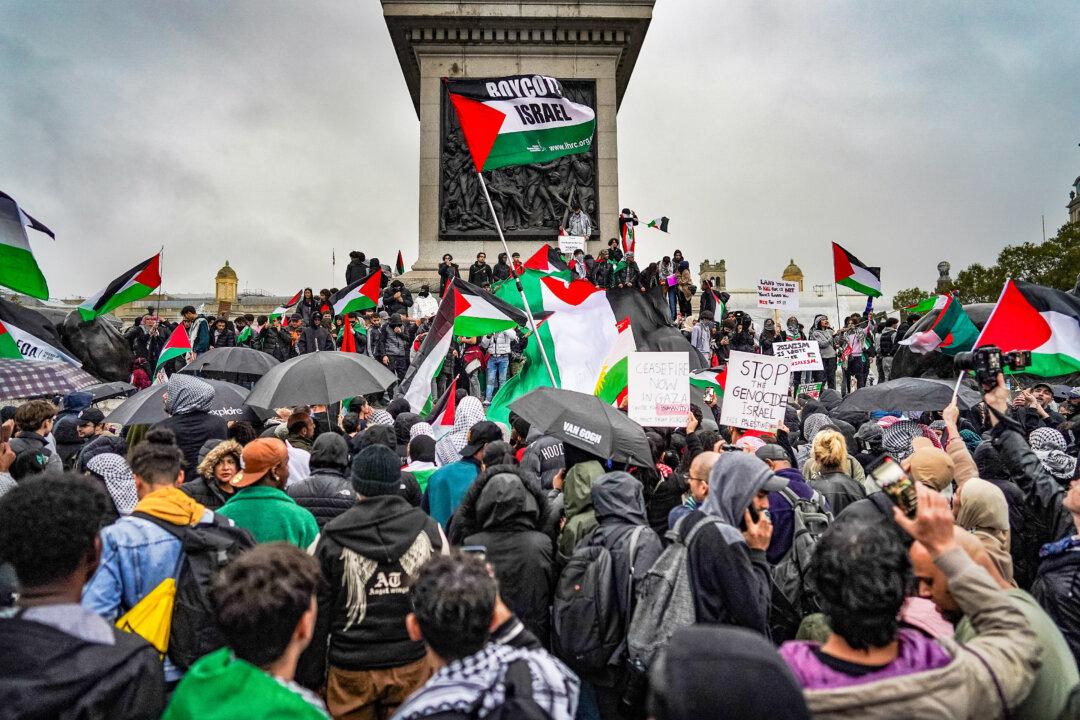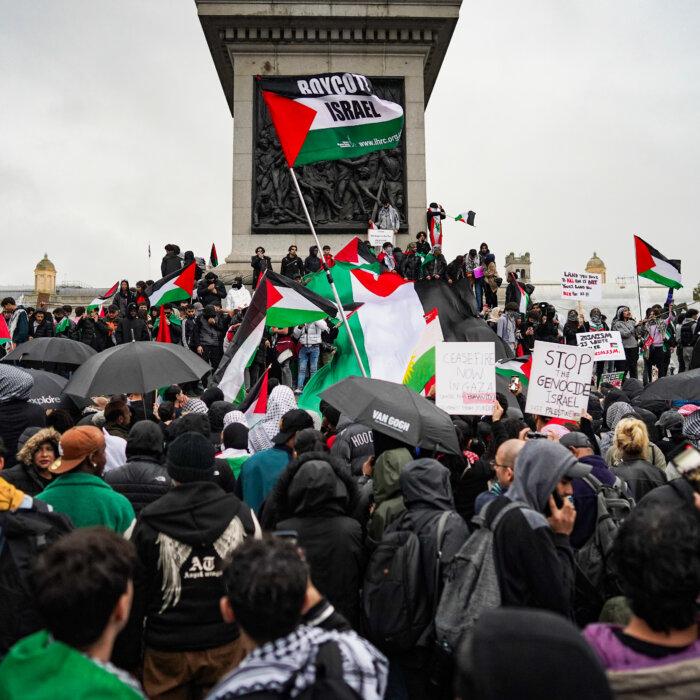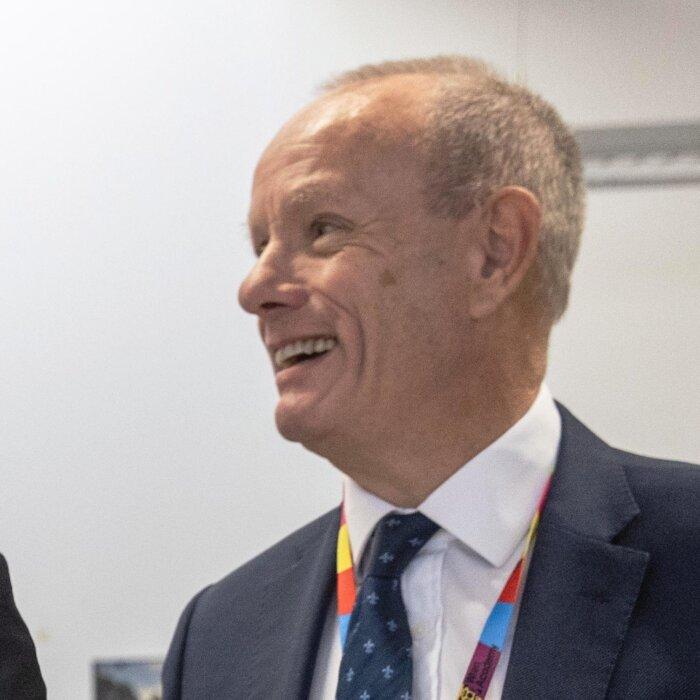The Metropolitan Police appears to have U-turned on a decision to not allow a pro-Palestine protest to reach Whitehall on Saturday, saying there will be speeches at the place.
The Met previously said it did not support the extension as the weekly march has been causing “serious disruption to Londoners.”
There will be “a substantial police presence in the West End” to ensure the event takes place safely and to minimise disruption to others, the force said.
The Met has imposed a number of conditions on the March, including the timing and the route. It’s also considering a ban on face coverings in the area and the use of other dispersal powers.
“We will deal swiftly with anyone who carries placards and banners or makes statements that cross the line into religiously or racially aggravated offences,” the statement reads.
It’s a clear shift from Thursday when a Met spokesman told The Epoch Times that the force didn’t “support a request to extend the march into Whitehall.
The “scale and frequency of marches is causing serious disruption to many Londoners,” he said at the time, adding that the force “must balance the rights of protestors with the rights of others.”
The decision was welcomed by Campaign Against Antisemitism (CAA), which spokesperson said “90 percent of British Jews say that they would avoid travelling to a city centre if an anti-Israel protest is taking place there.”
They said the demonstrations “have featured mass criminality, glorification of terrorism, genocidal chanting, anti-Semitic rhetoric, and even violence,” and CAA’s urban centres had “become no-go zones for Jews.”
But the main organiser of the demonstrations, the Palestine Solidarity Campaign (PSC), accused the Met of bowing under political pressure.
Deputy Assistant Commissioner Matt Ward, who is leading the policing operation, said on Friday: “We respect the right of people to protest, but other Londoners and visitors have rights as well.
“I understand the cumulative impact of repeated protests since October on businesses, residents, and those who want to travel into the West End.
“Getting the balance between competing rights can be difficult, but we will do it independently, impartially and always within the law.”
Since the Israel-Hamas war broke out on Oct. 7, pro-Palestine demonstrations, which are seen by critics as being anti-Israel or anti-Semitic, have taken the streets every Saturday, in London and sometimes across the country.
The marches during the day have been non-violent, although some have been arrested over anti-Semitic chants and placards or over violence among breakaway groups.
The Met’s Assistant Commissioner Matt Twist told the Home Affairs Committee in December that between Oct. 7 and Dec. 8, the Met had used 28,000 officer shifts to deal with the protests, and 1,600 officer shifts on mutual aid—meaning the officers were borrowed from other forces—and cancelled 5,500 rest days.
There had been more than 800 “open hate crimes” during the period, and over 6,000 hours of officer time would be needed to investigate them all, costing an estimated £17 million, he said at the time.
The non-violent marches themselves have also been controversial, including for the most popular chant, “From the river to the sea, Palestine will be free.”
Some demonstrators have told media outlets they’re just there to advocate for the casualties of war and didn’t know what the slogan means; some said “Palestinians” between the Jordan River and the Mediterranean Sea should be free, without being clear on who the “Palestinians” include or what “free” will look like; while some others clearly indicated they believe the State of Israel shouldn’t exist.
The Israel-Hamas war broke out after Hamas-led terrorists attacked Israel on Oct. 7, killing some 1,200 civilians and soldiers and taking over 240 hostages. Some victims have been found to be raped, burnt, or decapitated.
Israel hasn’t reported more civilian deaths in the ensuing war, but the death toll in Gaza, which is controlled by Hamas, has surpassed 27,000, according to the Hamas-controlled Gazan health ministry.







